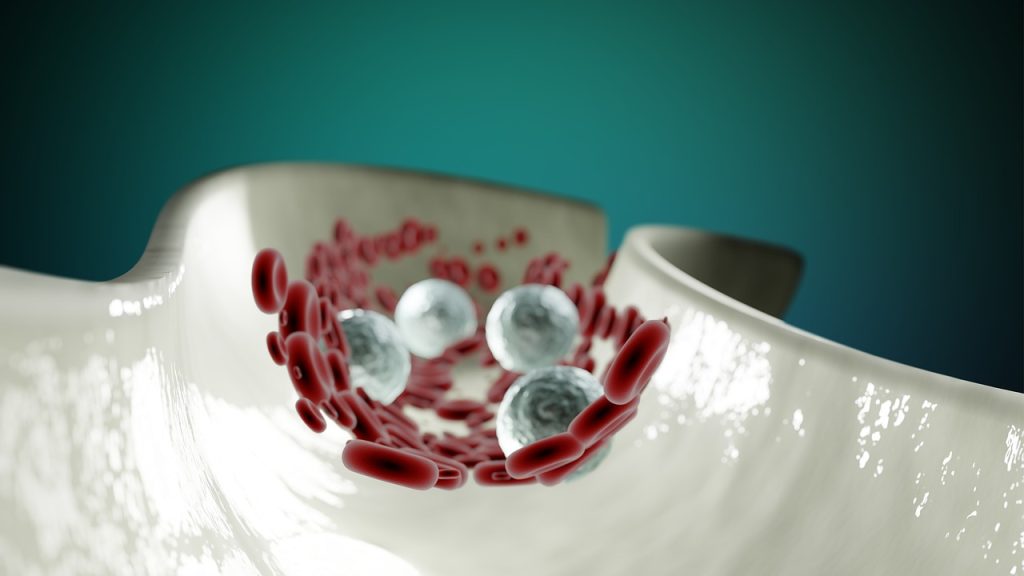Caffeine is a stimulant commonly found in beverages such as coffee, tea, and soda, as well as in some medications and dietary supplements. While it can provide a temporary boost in energy and alertness, excessive caffeine consumption can lead to a variety of negative health effects. Read on to discover more about the negative effects of caffeine.
Negative Effects of Caffeine and Sleep

The negative effects of caffeine are well-known when it comes to its ability to disrupt sleep patterns. Consuming caffeine close to bedtime can make it difficult to fall asleep and lead to insomnia. In addition, caffeine can also lead to a decrease in the quality of sleep, causing individuals to wake up feeling tired and groggy.
One of the main negative effects of poor sleep patterns is that it impairs cognitive function. Studies have shown that lack of sleep can lead to difficulties with memory, attention, and decision-making. It can also make it harder to focus and be productive during the day, which can negatively impact work or school performance.
Mood and Sleep Patterns
Poor sleep patterns can also have a significant impact on mood. Lack of sleep has been linked to depression, anxiety, and irritability. People who do not get enough sleep may find it harder to cope with stress and may experience feelings of sadness or hopelessness. This can also lead to a reduced quality of life.
In addition to cognitive and psychological effects, poor sleep patterns can also lead to a number of physical health problems. Lack of sleep has been linked to an increased risk of chronic diseases such as heart disease and diabetes. It can also weaken the immune system, making it harder to fight off infections and illnesses.
Another negative effect of poor sleep patterns is that it can lead to weight gain. Studies have shown that people who do not get enough sleep are more likely to gain weight, as lack of sleep affects hormones that control appetite and metabolism.
Finally, poor sleep patterns can also increase the risk of accidents and injuries. Lack of sleep can impair reaction times, making it harder to drive or operate heavy machinery safely.
Your Cardiovascular System

There are also many negative effects of caffeine on the cardiovascular system. High levels of caffeine intake have been linked to an increased heart rate, which can increase the risk of heart attack or stroke. Additionally, consuming caffeine can also cause blood vessels to constrict, which can lead to high blood pressure and other cardiovascular problems.
Caffeine’s effects on the cardiovascular system are complex and can vary depending on the individual’s overall health and the amount consumed. In moderate doses, caffeine can cause an increase in heart rate, blood pressure, and blood flow to the heart. This can be beneficial for individuals with low blood pressure or poor circulation. However, excessive caffeine consumption can lead to increased risk of heart disease and high blood pressure.
Feeling Your Heartbeat is Not Great
One of the main effects of caffeine on the cardiovascular system is an increase in heart rate. Caffeine stimulates the sympathetic nervous system, which causes the heart to beat faster and harder. This can be beneficial for some people, as it can improve blood flow and oxygen delivery to the heart. However, for individuals with pre-existing heart conditions, such as arrhythmias or hypertension, an increased heart rate can be dangerous.
Caffeine can also affect blood pressure by causing blood vessels to constrict, which can raise blood pressure. This effect is most pronounced in individuals who are sensitive to caffeine or consume large amounts of it. Individuals with hypertension or other cardiovascular risk factors should be cautious when consuming caffeine and should consult with their healthcare provider to determine an appropriate level of consumption.
Caffeine can also affect the blood vessels by increasing the stickiness of platelets. This can increase the risk of blood clots forming, which can lead to heart attacks or strokes. However, this effect is usually seen only in individuals who consume large amounts of caffeine.
Negative Effects of Caffeine on Mental Health

When it comes to the negative effects of caffeine on mental health, this could be less well considered. High levels of caffeine intake have been linked to anxiety, depression, and other mental health issues. Additionally, excessive caffeine consumption can also lead to feelings of agitation, jitteriness, and restlessness.
One of the main negative effects of caffeine on mental health is anxiety. Caffeine stimulates the release of stress hormones, such as cortisol and adrenaline, which can lead to feelings of anxiety and nervousness. This effect is most pronounced in individuals who are sensitive to caffeine or consume large amounts of it. Excessive caffeine consumption can also lead to panic attacks and an increase in symptoms of Generalised Anxiety Disorder (GAD) or Social Anxiety Disorder (SAD).
As already mentioned, caffeine can also negatively affect mood. While moderate caffeine intake can improve mood, excessive consumption can lead to feelings of irritability and depression. This can be due to the fact that caffeine can disrupt the delicate balance of neurotransmitters, such as dopamine and serotonin, in the brain which can lead to mood swings.
We have also mentioned the negative effects of caffeine on sleep. It can delay the onset of sleep and reduce the total amount of time spent in deep sleep, which can lead to feelings of fatigue and irritability. This can lead to insomnia and other sleep disorders, and excessive caffeine consumption can worsen symptoms of pre-existing sleep disorders such as insomnia, sleep apnea and Restless Leg Syndrome.
Caffeine can also negatively impact cognitive function. While moderate caffeine intake can improve cognitive function, excessive consumption can lead to cognitive dysfunction, such as memory loss and difficulty concentrating. This can be due to the fact that caffeine can over-stimulate the brain and make it difficult to focus or process information.
Caffeine and Its Addictive Nature

Of course, the negative effects of caffeine concerning its addictive nature are also well-known. Regular caffeine consumption can lead to a physical dependence on the substance, making it difficult for individuals to quit or cut back on their caffeine intake. Withdrawal symptoms such as headaches, fatigue, and irritability can occur when an individual suddenly stops consuming caffeine.
Caffeine’s addictive nature is due to its ability to stimulate the release of dopamine, a neurotransmitter associated with pleasure and reward. When consumed in moderate amounts, caffeine can provide a sense of well-being and improved mood. However, when consumed in excessive amounts, caffeine can lead to addiction, as the brain becomes dependent on the release of dopamine.
Being Addicted to Anything Is a Bad Idea
Individuals who consume large amounts of caffeine on a regular basis may develop a physical dependence on the substance. This can manifest in the form of withdrawal symptoms, such as headaches, fatigue, and irritability, when decrease or stop your caffeine consumption. These withdrawal symptoms can be so uncomfortable that many people continue to consume caffeine despite the negative consequences.
Chronic caffeine consumption can also lead to psychological dependence, as individuals may come to rely on caffeine to improve their mood and energy levels. They may also feel the need to consume caffeine in order to function normally during the day. This can lead to a cycle of addiction, as individuals may consume caffeine in the morning to feel alert, then consume more caffeine throughout the day to maintain that alertness.
Caffeine addiction can also lead to negative consequences on an individual’s physical and mental health. Excessive caffeine consumption can lead to negative effects on mental health such as anxiety, depression, and insomnia. It can also lead to negative effects on physical health such as high blood pressure, heart palpitations, and sleep disorders.
Wrapping Up the Negative Effects of Caffeine
In conclusion, while caffeine can provide a temporary boost in energy and alertness, the negative effects of caffeine can lead to a variety of poor health effects such as sleep disturbances, cardiovascular problems, mental health issues, and addiction. It’s important to consume caffeine in moderation to avoid these potential dangers, and to be aware of the risk factors.
What to read more great articles about living your best life? Then head over to our blog where we add posts on a regular basis.
Read More
- Empathy and Its Part in Emotional Intelligence
- 5 Strategies for Practising Self-Regulation
- Arthritis – Its Symptoms, Causes and Treatments
- The Increasing Popularity and Benefits of Air Purifiers
- Why Fighting Chronic Stress Is Everybody’s Fight
Disclaimer: The information provided on Healthy Lifestyles for All is intended for general educational purposes only and should not be considered as medical advice. Please consult with your GP or other health professional before making any significant changes to your diet, exercise routine, or any other aspect of your lifestyle. We are not responsible for any adverse effects or consequences resulting from the use of the information provided on our blog.
Comments: I hope you enjoyed reading this post as much as I enjoyed writing it. If you liked it, please leave a comment. If you didn’t like it, disagree with something I have written (I’m okay with that), or think I got something wrong (that’s okay too), please leave a comment as well. We only truly learn from our mistakes, so I am happy to have mine pointed out.
Affiliate Links: Please also note that I may make a small amount of money if you buy one of the products I recommend in any of my blog posts. Rest assured that I have done my own due diligence, and only recommend products that have been tried and tested, and have extremely good feedback. Additionally, many of the products I recommend have 30 or 60-day money-back guarantees, so you can buy in the confidence that if a particular product is not right for you, you can get a refund.

